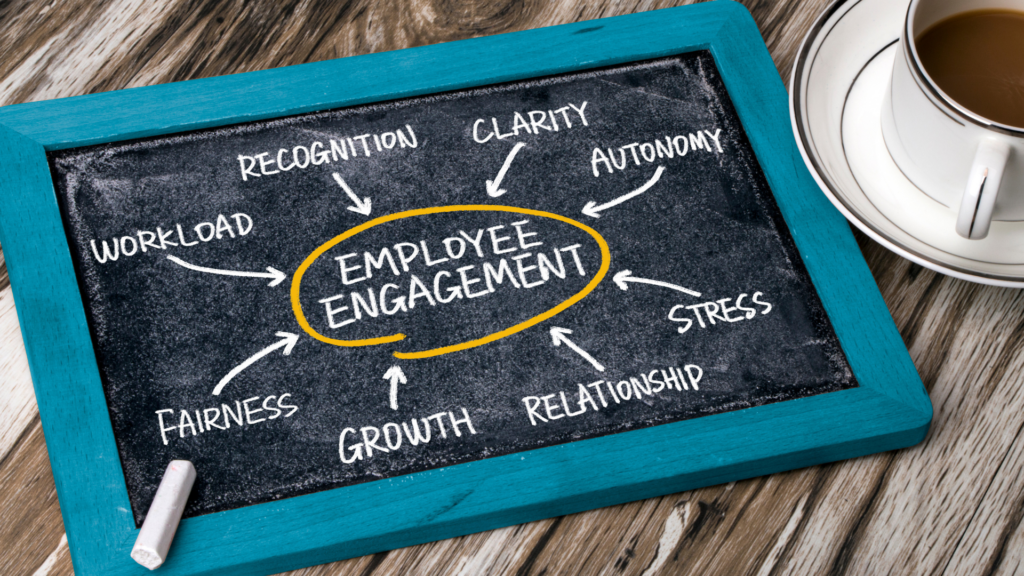Right after I wrapped up my university degree, I was super excited to dive into my career. But let me tell you, it was no walk in the park trying to land my very first job. Finding a job, especially in my hometown, was a real challenge. After a whole lot of searching, I finally scored a full time job at an optical clinic.
I worked really hard and did a great job, even better than anyone else in my position had ever done in our area. At first, going to work every day was exciting. But as time passed, I started to see a lot of negativity at work.
This mostly came from the doctors I worked with. They were mean, they are aggressive communicators, and they make hurtful jokes about my body a lot.
I tried to talk to my manager about it, hoping we could fix the problems at work. But to my dismay, she told me, “You are just too sensitive. Just deal with it.”
The doctors knew about this and it elevated the toxicity even more.
So, I had a tough choice to make. My first option was to leave. But that would mean I had to go through the difficulties of job searching again. My second option is to stay, but that means I have to deal with a toxic work environment for a long time.
I felt unhappy and disengaged. I didn’t do my job well, and I even started coming to work late and sometimes going on leave without notice. Finally, I got the courage to talk again to my manager and tell her I wanted to leave the company.
When she told the higher-ups about it, they really didn’t want me to go. They offered me a promotion, more incentives, and a different place to work so I wouldn’t have to work with the doctors I worked with.
But, I said no. This was a big moment in my career, and it taught me something important: you can’t buy employee engagement. Ever.
So, what did I learn from all of this?
Employee engagement is a big concept with a lot of parts, but most of them are not about money. Even though you get paid for your job, that doesn’t make you like it or be excited about it.
Paying people fairly for their work is important, but true engagement is about more. It happens when the workplace has a great culture and people talk to each other with respect and care about each other genuinely.
Offering gifts, incentives, or even higher pay won’t solve the fundamental issues in your company’s culture. It’s perfectly fine to have enjoyable events and pay your employees well, but if you only use quick band-aids to make your employees happy, it won’t work (and might even make things worse).
You need to earn your employees’ engagement.
Ways to engage your employees
Here are a few ways you can boost employee engagement:
Inspire them
It’s really important to make sure your team members understand how their roles fit into the whole picture of your organization. So, take a moment to explain how their work directly helps achieve your company’s goals and mission. When people see how their efforts make a positive impact, it tends to get them more motivated and excited about what they’re doing!
Foster psychological safety
You want to create an environment where your team members feel comfortable sharing their thoughts, concerns, and feedback. It’s all about making sure they know there won’t be any negative consequences for speaking up.
And here’s the thing, listening is key to making this work. When your employees open up and share their perspectives, it’s crucial to be an active listener. Respond with empathy and constructive feedback to show that you truly value their input.
Employees who feel their voice is heard are 4.6 times more likely to perform their best work!
Recognize and appreciate them
You know, it’s so important to regularly acknowledge and appreciate your employees’ hard work and accomplishments. Sometimes, a simple “thank you” or some public recognition can really boost morale and motivation. It’s crucial to show your gratitude and highlight their contributions!
Care for them
Truly caring about your employees’ well-being, both at work and in their personal lives, is incredibly important.
Here at Civility Partners, we’ve adopted a holistic approach. We start by talking about how we’re doing personally and in our roles before jumping into work-related stuff. This approach helps us build stronger relationships and emphasizes that our team members are valued not just for their job performance but as individuals with unique needs and aspirations.
Resolve issues
Addressing issues and concerns, even the uncomfortable ones, is absolutely essential for maintaining a healthy and respectful work environment. You need to nip negative behavior in the bud.
To help you deal with these situations, here’s a blog post we recently published for Workplace Bullying Awareness Week. It’s packed with valuable strategies to help you address these issues effectively.
It’s crucial to foster an upstander culture within your organization. Be an ally and step up to have those essential conversations. To make it easier, I’ve included some scripts to guide you.
Positive work culture
Building employee engagement requires a multifaceted and ongoing effort rooted in a healthy work culture across the entire organization. It’s a combination of several key elements, including:
- Employee wellness programs
- Effective onboarding processes
- Authentic mission statements
- Core values that serve as the organization’s guiding principles
- Holding people accountable for their behavior through performance management
- The consistent practice of positive behaviors
Dive deeper into “Creating a Positive and Healthy Work Environment” by checking out Catherine’s LinkedIn Learning course on the topic!
ROI of employee engagement
Employee turnover can be a real budget drainer, but the smart move is to invest in your company culture, and here’s why:
According to a Gallup study, highly engaged organizations can see a whopping 18% higher revenue per employee. What’s more, business units with highly engaged teams can drive a 21% increase in profitability for the employer!
And that’s not all. Companies with a strong corporate culture report revenues that are four times higher. Human Resource professionals need to work closely with organizational leaders, and develop strategic plans to help it grow and be successful.
Leaders should always keep in mind that employee engagement plays a significant role in the overall success of the organization. After all, your people are your most valuable assets. It’s vital to ensure they’re thriving, engaged, and happy for the benefit of everyone involved.
Let us know how we can help you and your organization. You know where to find us. 🙂
Written by: Jennifer Areola



